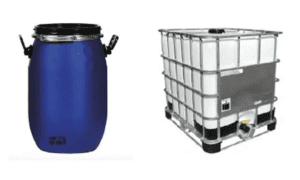
Heat Transfer Fluid
“A revolutionary cooling solution for the challenges of a warming planet”
How Maxwell™ Works in a Chilled Water System
Water (or a water/glycol mix) is circulated from the chiller in a closed evaporator loop to Air Handling UJnits (‘AHU’). Maxwell™ increases the transfer of heat in the chiller evaporation cycle, reducing compressor “lift” or work and thus, the consumption of electrical energy. Maxwell™ also increases thermal energy transfer in the AHU coils, which allows for higher chilled water set points, and lower fluid and air flow rates through pumps and fans, reducing their electrical power consumption. Maxwell™ can also be used in a closed condenser circuit but not with an open cooling tower.
Main benefits
Substantial energy savings.
Carbon emissions reduced proportionally to reductions in energy consumption.
Expanded capacity of existing equipment that can increase performance and output.
The ability to use smaller, less costly and more efficient equipment in the design process of an HVAC system.
Long useful life (10+ years), after which Maxwell™ can be recovered from the System and is fully recyclable.
Wide operating temperature range.
Maxwell™ is non-corrosive and non-toxic.

Applications
In the typical situation where no cross-contamination
is required, a run-around loop is the system of choice. When added to the run-around loop, Maxwell™ increases heat transfer at the exhaust fan recovery coil and air handler pre-heat / cool coil by 15% or more allowing the fluid pump to run on lower flow rate/power. Maxwell™ offers significant heat transfer improvement, energy savings, carbon emissions reductions and improved equipment performance in energy recovery systems.
Industries Benefitting from Maxwell™:

Average Payback Period

Sustainability Impact of Using Maxwell™
TUTUM supported by our partner Insynch are proud to be able to deliver the Maxwell™ cooling solution across the world…
The Solution
- Patented Innovative heat transfer nanofuild additive
- Effective in any closed – loop water or water/glycol – based system
- Suitable for cooling, heating and process applications
- comprises only 2% of total system fluid volume
Delivering Instant Results
- Up to 15% energy reduction
- Competitive 1 – 2 year payback period
- Lower carbon emissions
- Increase in HVAC system capacity
Simply & Safely
- Guaranteed lifespan of 10 + years
- No downtime … simple drop in additive
- Non corrosive and non toxic
Intelligent Monitoring
- Cloud monitoring portal that measures in real time energy savings and emissions